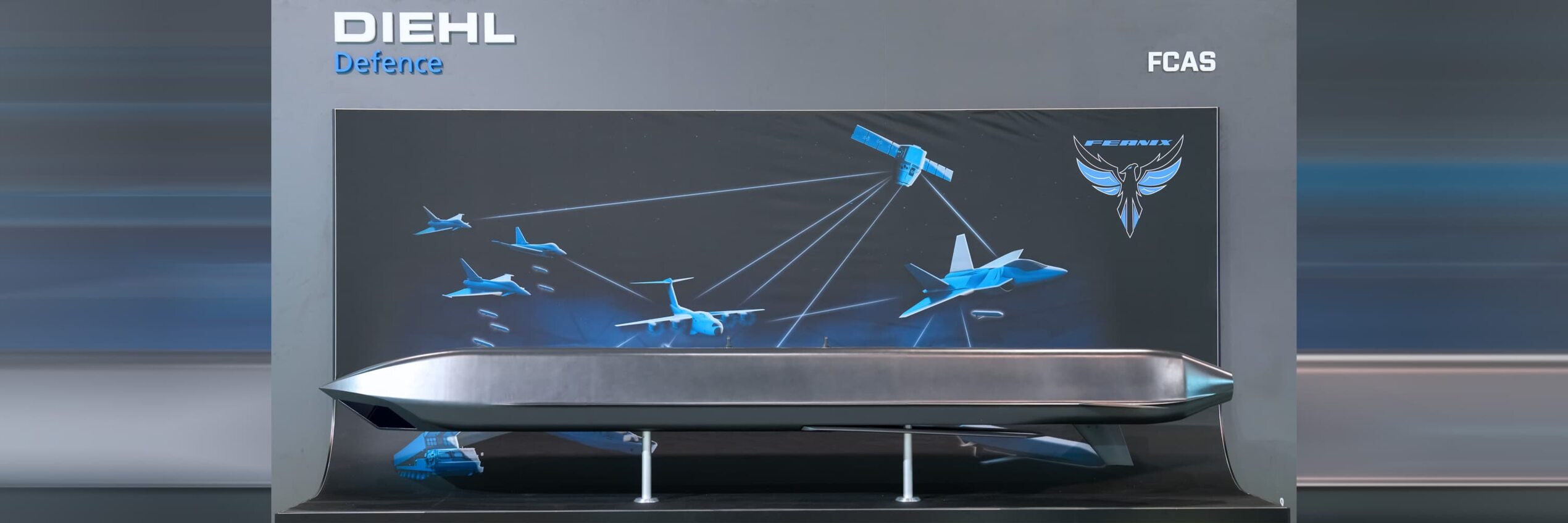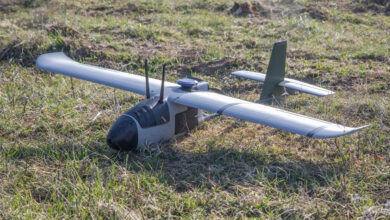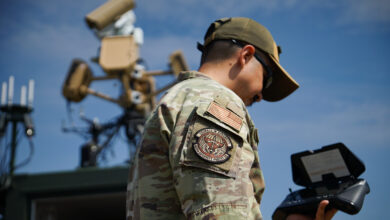German defense contractor Diehl Defence has launched its new Light Remote Carrier (LRC) unmanned aerial system at an aerospace trade convention in Berlin.
The Future Effector – Adaptable, Networked, Intelligent, Expendable (FEANIX) drone weighs approximately 300 kilograms (661 pounds) and measures less than 4 meters (13 feet) long.
It is deployable from the ground or sea and incorporates a modular design for individual configuration based on a user’s payload requirements.
Solutions the system can integrate include sensors as well as lethal and non-lethal effectors depending on operational scenarios.
Alongside its carrier functions, the system incorporates swarming, networking, and stand-off capabilities.
“In the past years, Diehl Defence has increasingly carried out self-financed research and development activities on Remote Carriers in the field of missile systems,” Diehl said in its press release.
“With FEANIX as a product, Diehl Defence further advances the operational concept of the LRC, expands its product portfolio with a future-oriented approach and, in the long term, closes an identified capability gap in the armed forces.”
Supporting European FCAS Program
According to Diehl, the FEANIX is developed to “significantly reduce” the risks to military crews during airborne missions.
Part of the drone’s application will support the European Future Combat Air System (FCAS) program which seeks a sixth-generation fighter jet, corresponding “wingman” remote carriers, and a modern weapon system among others.

A test flight for this effort is expected to take place in 2027, while resulting solutions are expected to enter service under FCAS partners Germany, France, and Spain in the 2040s.
Dassault Aviation, Airbus, and Indra are the prime contractors selected for this initiative.
During the event in Berlin, Airbus also revealed a full-scale model of its carrier drone offering for the FCAS program.
In Talks With Germany
Diehl Defence FEANIX Project Lead Alexander Brugger confirmed in an interview with Breaking Defense that the company is now negotiating with the German military to fund and produce the drone.
Brugger also told the outlet that Diehl is planning to complete a prototype at the firm’s Überlingen facility by 2028.












